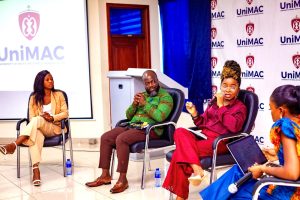
Makafui Aikins, the Chief Executive Officer of Nvame, delivered a compelling address at the ‘Creative Cave Seminar’ hosted by the Faculty of Integrated Communications Sciences, Department of Languages and Communications Skills of the University of Media, Arts, and Communication (UniMAC).

Themed ‘Unarchiving the African Heritage: Our Culture, Our Identity’, the event brought together thought leaders, academics, students, and creatives to interrogate the role of the African creative in safeguarding cultural heritage and redefining identity.
Speaking as a panellist, Ms Aikins challenged attendees to reflect on the urgent need for Africans to consciously document their history. “When we fail to document our own stories,” she asserted, “we inadvertently perpetuate the harmful stereotype that we are a people without history.” She stressed that storytelling—whether through literature, visual art, theatre, or digital media—is more than creative expression; it is a powerful act of reclaiming identity and resisting erasure.
Using the example of China, Ms Aikins illustrated how a nation’s deep awareness of its cultural heritage can inspire generations to transcend barriers and achieve greatness across every domain of life. “A people confident in their heritage,” she said, “are more likely to harness their identity to drive innovation, unity, and development.”
But to write authentically and carry out this mandate, the African creative, she warned, must begin by decolonising their own mind. Referencing Germany’s post-WWII denazification, Ms Aikins argued that Africans must embark on a deliberate process of resocialisation and re-education to purge inherited colonial mentalities. “A writer with a colonised mindset,” she noted, “can do more harm than good—cementing falsehoods and negative portrayals of our people into the collective memory of current and future generations.”
Drawing on René Descartes’ philosophical method of “emptying the basket,” Ms Aikins urged creatives to question every part of their worldview. “Just as Descartes examined each apple to discard the rotten, we too must examine every idea, every perspective we hold, and discard what does not serve our liberation or truth.”
Makafui Aikins also spoke extensively on the transformative power of art in all its forms—from storytelling and poetry to visual media and theatre. She noted that art is a mirror, a megaphone, and a movement. “Art allows us to tell stories that awaken pride, heal trauma, challenge systems, and celebrate the everyday magic of being African.”
On the international front and the economic viability of arts and literature, she expressed optimism about the African Continental Free Trade Area (AfCFTA) Protocol on Intellectual Property, which she said holds promise for elevating African creativity by providing broader markets and legal protections for authors, artists, and inventors across the continent. “The arts are not a niche—they are part of the economy. Copyrights and royalties can be as powerful as commodities and exports if well managed,” she said.
However, she cautioned against some of the unique challenges that today’s generation of creatives face, particularly the pressures of instant gratification in the social media age. She likened the journey of a creative to that of an entrepreneur: “You don’t expect profit in your first year; you invest, you build, you refine. Likewise, the young Ghanaian or African creative must be willing to hone their craft over time and trust in its return—be it impact, influence, or income.”
Ms Aikins also highlighted the importance of discernment and authenticity in creative work. “Creative writers and artists often make the mistake of attempting to imitate successful voices, but we must remember—especially in a globalised world where Western voices dominate—that our unique African voices, perspectives, and styles matter deeply.” She challenged creatives to be deliberate in crafting from their identity, not away from it.
One of the most powerful calls of her address came in her advocacy for Africanism in all aspects of the writer and artist’s life. From clothing to language, naming conventions to oral wisdom, she called on creatives to infuse African traditions into every facet of their work. “If our culture, our way of dressing, our idioms, our language, our foods, etc., don’t appear in our stories, who will shed a spotlight on these aspects of our existence as a people? Is the Ghanaian and African doomed to disappear from the face of this earth upon their physical departures?” she queried.
In response to a student’s question about the perceived informality of African wear, Ms Aikins made a passionate appeal to the administration of UniMAC. “Let our students wear African clothes proudly—anywhere and anytime. For our African apparels are indeed professional. No nation can hope to succeed globally if it does not first treat its own culture, literature, and aesthetics as elite.”
Makafui Aikins ended her remarks with a rousing call to action: “Let us be the archivists of our own existence. Let our pens, our brushes, our voices, our scripts, and our platforms carry the legacy of our ancestors and the hopes of generations to come.”
The Creative Cave Seminar was a significant moment of dialogue and inspiration—one that reaffirmed the crucial role of the arts in shaping Africa’s future.
The post Nvame CEO pushes conscious documentation, decolonisation, and commercialisation of Africa’s creative arts appeared first on The Business & Financial Times.
Read Full Story

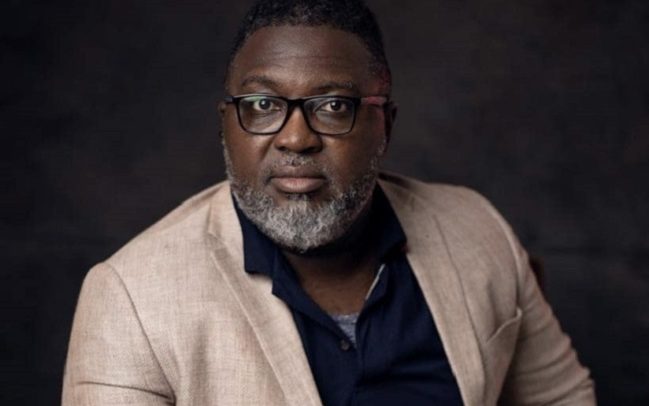
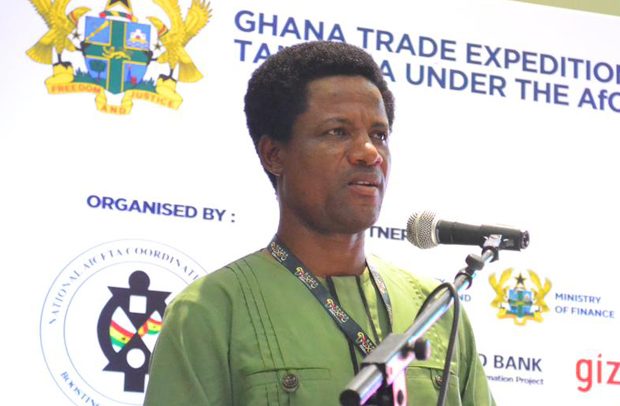
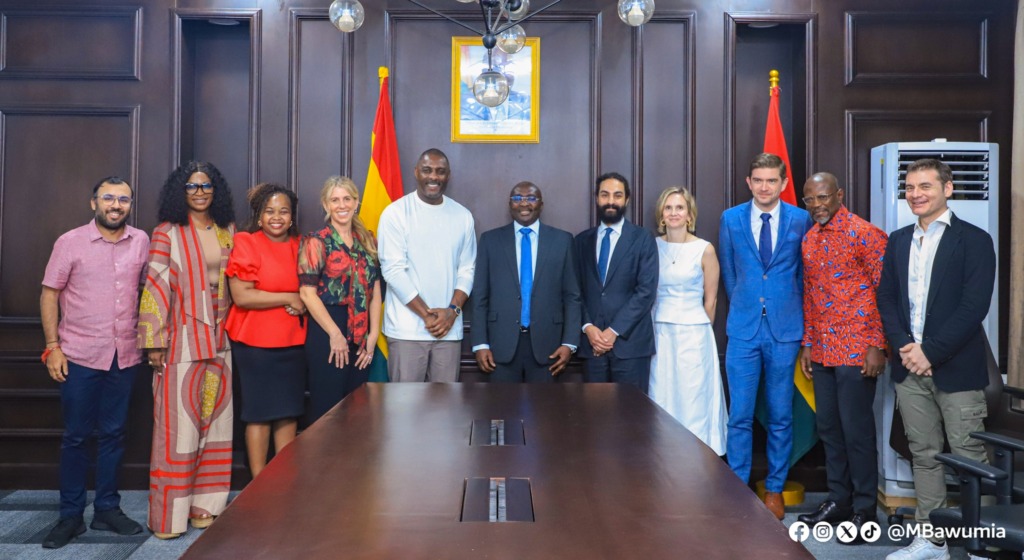
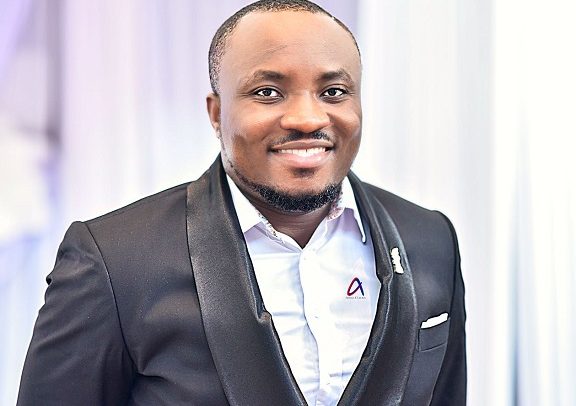
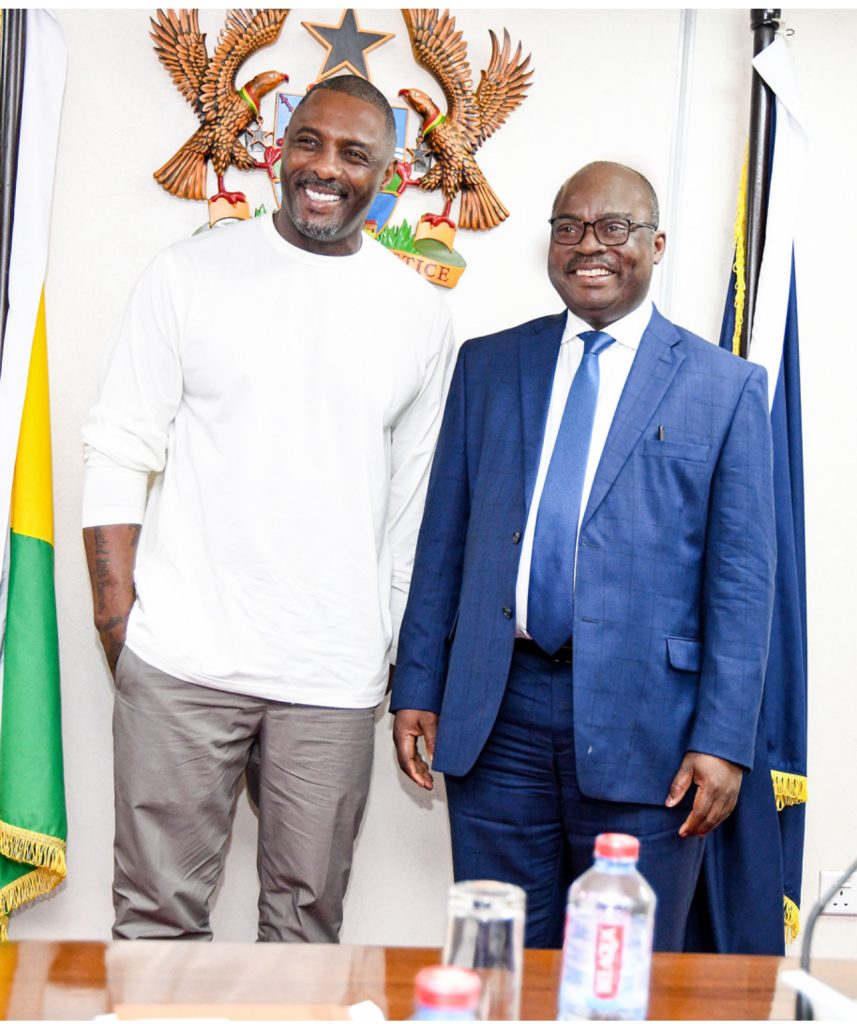


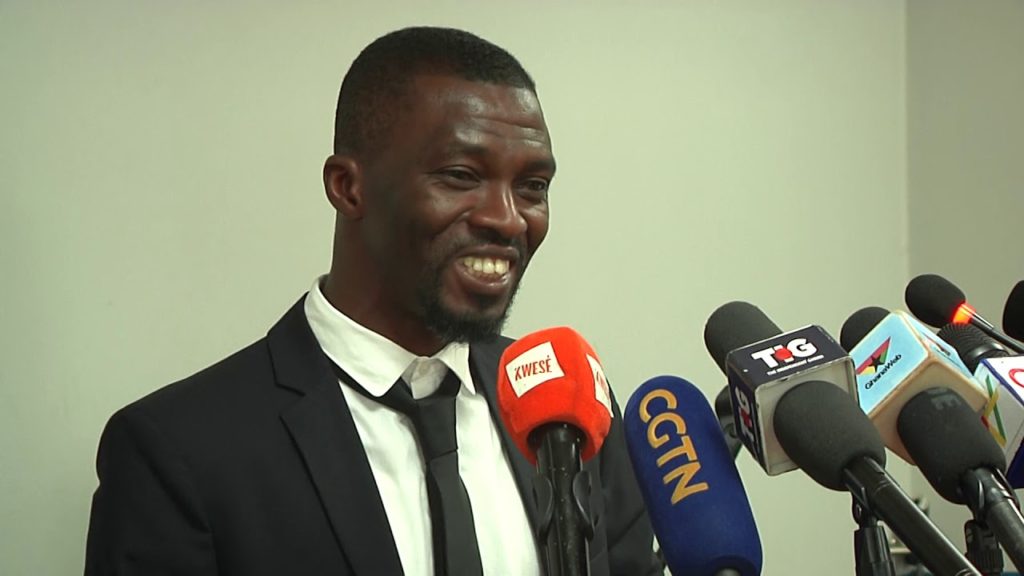



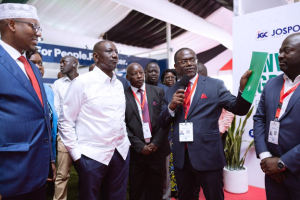

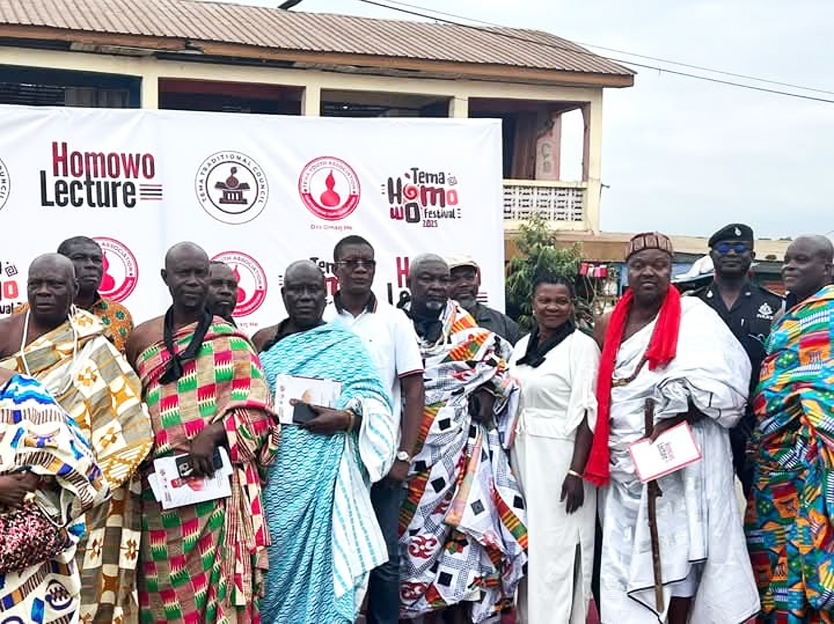
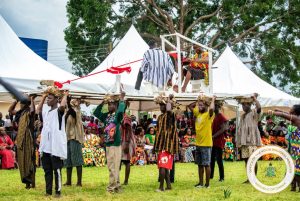

Facebook
Twitter
Pinterest
Instagram
Google+
YouTube
LinkedIn
RSS